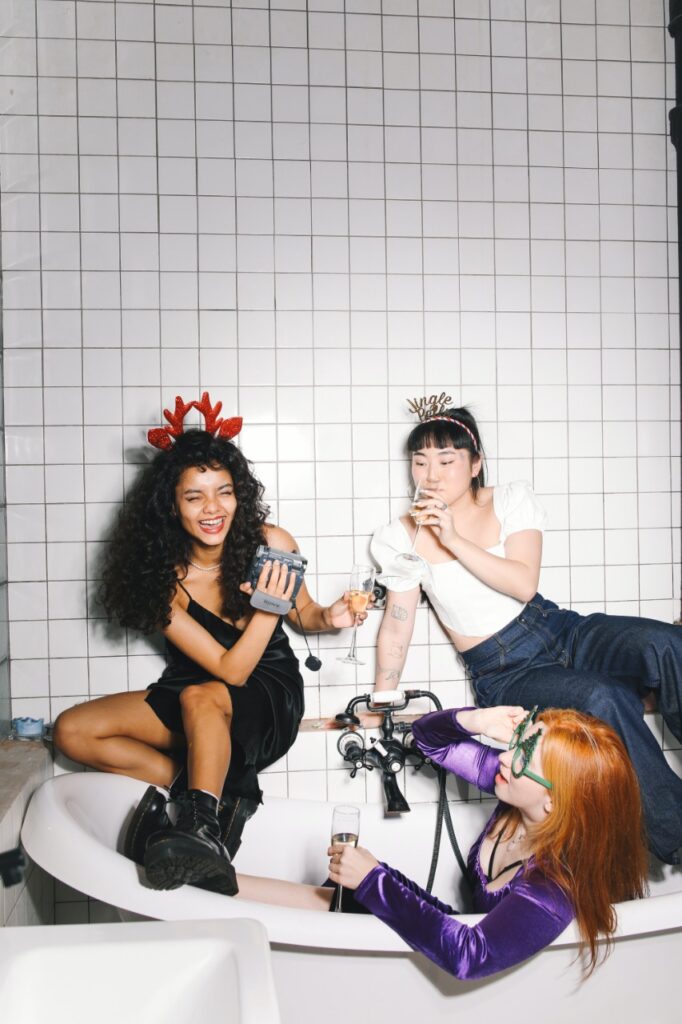Unicorns are usually found in fictional stories, mythical creature that expels rainbows from every orifice. However, in polyamory, unicorns and unicorn hunters are commonly used terms. So what exactly are unicorns in our world and is being a unicorn hunter good or bad?
Unicorn hunting refers to when a couple looks for a third partner in the dating world, usually a bisexual woman, to join their relationship. The new partner is expected to have a relationship with the couple as a single unit, be completely exclusive to them, and abide by their pre-established rules. The new partner is devoid of any autonomy or desires. Usually, the women approached for such propositions are sexualized for their identities and used for the sexual gratification of the couple (or fantasies of the man). This is very harmful and predatory, and negatively impacts bisexual women and adds to their fetishization by society.
 Let’s cut to the chase, being a unicorn hunter is bad. Don’t be a unicorn hunter. Now let me explain why and the reasons it is viewed with suspicion, dislike and scorn and every other negative adjective in the dictionary.
Let’s cut to the chase, being a unicorn hunter is bad. Don’t be a unicorn hunter. Now let me explain why and the reasons it is viewed with suspicion, dislike and scorn and every other negative adjective in the dictionary.
As previously mentioned, unicorns don’t exist in real life . Unicorn hunters are looking for someone to satisfy requirements that are simply impossible to exist within a person, being so hard to find, these people are then called ‘unicorns’ for their rarity.
Opening up your relationship and stepping into the world of polyamory is an exciting experience. You’re bound to make mistakes and learn/unlearn as you go. However, many couples are prone to becoming ‘unicorn hunters’ and contribute negatively to the community. Hence it is important to know what to avoid and take informed steps ahead.
 A triad is a relationship between three people, where everyone has their boundaries and wishes respected. All three people have a relationship with each other and they dynamically impact each other. The three people engaged in the arrangement discuss their needs with each other, and together develop mechanisms that work for everyone. Therefore, everyone has an equal say in what works and what does not for each of them and structure their relationship accordingly.
A triad is a relationship between three people, where everyone has their boundaries and wishes respected. All three people have a relationship with each other and they dynamically impact each other. The three people engaged in the arrangement discuss their needs with each other, and together develop mechanisms that work for everyone. Therefore, everyone has an equal say in what works and what does not for each of them and structure their relationship accordingly.
For example, Person A and B love spending quality time together but Person C prefers having time alone for a few hours daily, therefore all three will structure the relationship in such a manner that Person C can have time to themself as well as with each other.
As we can see, expectations, preferences and deal breakers are communicated, and truth and honesty between all partners are keystones for having a healthy experience.
This is in heavy contrast to how unicorn hunters dictate the relationship for their new partner, where Partner A and B do not incorporate Partner C into their discussions about the relationship, expect the same expression of attention for both of them and consider the couple as a ‘supreme unit’. Does this all not sound exhausting? The expectation to divide time, love, affection and attention equally between the couple is unrealistic and unfair especially when the new partner does not receive the same standards.To put the new partner into a predefined role where they cannot exercise much autonomy just sounds violent.
A lot of the time, since the new partner creates new dynamics within the relationship, there is a large amount of jealousy and feelings of ‘infidelity’ start to foster between the couple. This is then taken out on the new partner, thereby creating a hostile and toxic environment. Also, I should mention, many bisexual women who are part of the couple that opens up usually find the experience more enlightening than their counterpart, which adds to the complications of the established relationship.
This is not a sustainable way of forming relationships or participating in polyamory.
As a queer person, I have come across a fair amount of couples ‘looking to add a third’ on dating apps and to be very honest, the language itself reeks of unequal power dynamics all leaning towards the couple. It makes me feel sexualised just from reading it. To add insult to injury, many couples are not interested in exploring polyamory but rather want to recreate their favorite porn which just makes it worse. Many people who have been victims of unicorn hunting begin to feel grossed out by their identity, bodies and become skeptical of their desire to explore beyond monogamy.
If you’re a couple interested in figuring out your sexualities beyond each other, I would recommend beginning this journey separately and practicing honest communication with all your partners if you want to have a healthy and satisfying experience. Making mistakes is okay, this is what community and the internet is for! But please do not become unicorn hunters ever.
Writer Vansha Jain





